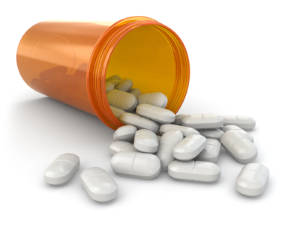If you could live a longer, healthier life by taking a small pill each day, you’d do it wouldn’t you? You’d be crazy not to! So with this fact in mind, the incredible growth of dietary supplements makes sense. An estimate of one out of every three Americans currently takes some sort of nutritional supplement each day. According to government statistics, more than $11 billion is spent each year on vitamins and minerals in the U.S. alone!
 This extreme interest in health and nutrition is, unfortunately, fueled by false advertisement. The Internet, television, and product labels make claims not backed by science, fooling millions and reaping a sizable paycheck. Furthermore, in America, Food and Drug Administration regulates supplements the same way that foods are, not as if they are medications. Thus, supplement manufacturers aren’t required to back their claims by science.
This extreme interest in health and nutrition is, unfortunately, fueled by false advertisement. The Internet, television, and product labels make claims not backed by science, fooling millions and reaping a sizable paycheck. Furthermore, in America, Food and Drug Administration regulates supplements the same way that foods are, not as if they are medications. Thus, supplement manufacturers aren’t required to back their claims by science.
In your quest for fitness, don’t be fooled by these three myths surrounding the use of nutritional supplements.
Myth #1: “More Is Better”
 If vitamins, minerals, botanicals, and herbs are good for you and available over the counter, they must be safe to take in high doses, right? Science has proven otherwise. You feel a cold coming on so you pop the vitamin C pills and lozenges to ward it off, but too much of certain vitamins and minerals can be dangerous. For example, when you overdose on vitamin C, your body loses its ability to absorb copper; too much phosphorous and your body can’t absorb enough calcium; vitamins A, D, and K can build up to toxic levels when large doses are taken; too much vitamin A will put you at risk for osteoporosis; vitamin E may increase your risk of stroke; and iron your risk of heart disease. And you thought those supplements came with no risks.
If vitamins, minerals, botanicals, and herbs are good for you and available over the counter, they must be safe to take in high doses, right? Science has proven otherwise. You feel a cold coming on so you pop the vitamin C pills and lozenges to ward it off, but too much of certain vitamins and minerals can be dangerous. For example, when you overdose on vitamin C, your body loses its ability to absorb copper; too much phosphorous and your body can’t absorb enough calcium; vitamins A, D, and K can build up to toxic levels when large doses are taken; too much vitamin A will put you at risk for osteoporosis; vitamin E may increase your risk of stroke; and iron your risk of heart disease. And you thought those supplements came with no risks.
When choosing a multivitamin and other supplement, look for ones that contain no more than 100 percent of each ingredient and be careful of combining a multivitamin with another vitamin supplement.
Myth #2: “A Supplement Will Make Up for My Unhealthy Diet”
Hate vegetables? Drink too much caffeine? Like to skip breakfast? Well, be wary of relying solely on supplements to make up for your nutritional deficiencies. Your body is better able to absorb nutrients from real food. So supplements should only be taken as icing on your healthy cake. Besides, relying on supplements to fill in nutritional gaps can put you at risk for the overdosing dangers mentioned above.
With a healthy diet that includes plenty of fruits, vegetables and lean proteins, you’ve got little room for the need of supplements. Eating a healthy well-rounded diet will also provide millions of phytonutrients unavailable in supplement form. It also helps your supplements be more effective when you do take them, as supplements are made less effective when taken on an empty stomach.
Myth #3: “I Can Trust the Claims of Supplement Labels”
Many supplement containers describe the health benefits their ingredients aim to provide. These range from increased vitality to improved disease immunity. Great as these claims may sound, there are no significant and proper research to back them up. They are, however, great marketing tools that will pull you in and trick you right out of your money.
It isn’t surprising that the claims of supplements aren’t proven by anything other than anecdotal evidence. Recently, independent research found that 30 percent of products labeled as multivitamins do not include the ingredients in the amounts listed on the labels and occasionally contain dangerous ingredients.
If you haven’t yet become one of my valued clients then now is the time! I’d like to show you how a consistent, challenging exercise program will dramatically transform your body – once and for all!
Call or email today to get started!
Reinvent Yourself
Recent advances in neuroimaging techniques have discredited the old saying, You can’t teach an old dog new tricks. Scientists have discovered that the brain actually has dynamic properties throughout life. This means that your brain is always evolving. Through practice, you are able to change your habits and change yourself.
So go on, reinvent yourself!
Fast & Healthy Fish Tacos
Who said that fish tacos had to be fried? This refreshing recipe uses baked Cod and fresh coleslaw for that fish taco taste that is hard to beat. Need to fix dinner in a hurry? This recipe only takes 20 minutes.
Servings: 2
Here’s what you need…
 1 pound Fresh Skinless Cod
1 pound Fresh Skinless Cod
1 Tablespoon Coconut oil
¼ teaspoon Cumin
⅛ teaspoon Garlic powder
½ cup Nonfat Plain Yogurt
1 Tablespoon Apple Cider Vinegar
2 Tablespoons Honey
3 cups Shredded Cabbage Mix
4 Whole Wheat Tortillas
Lime or Lemon to taste
Rinse fish and past dry with paper towels. Cut fish crosswise into ¾ inch slices. Place fish in single layer in greased shallow baking pan. Combine coconut oil, cumin, and garlic powder. Brush over fish. Bake in a 450 degree oven for 4 to 6 minutes or until fish flakes easily when tested with a fork.
Combine the yogurt, vinegar and honey. Place the cabbage in a medium sized bowl. Combine the yogurt mixture with the cabbage until well blended.
Spoon some of the coleslaw mixture into each tortilla; add fish slices. Squeeze fresh lime or lemon to taste. Enjoy!
Nutritional Analysis: One serving equals: 327 calories, 5g fat, 40g carbohydrate, and 26g protein.

 YES! Contact me today to schedule a FREE no obligation consultation and trial workout.
YES! Contact me today to schedule a FREE no obligation consultation and trial workout.